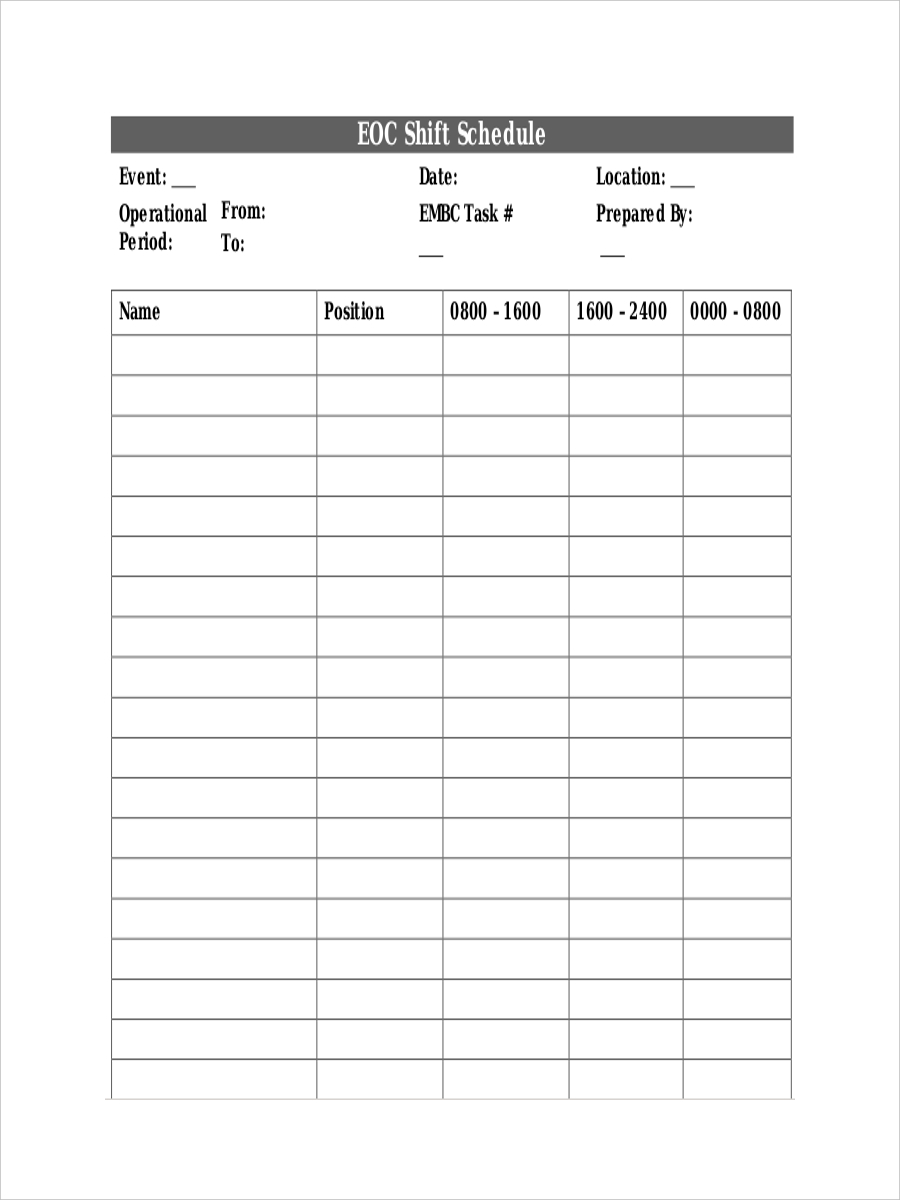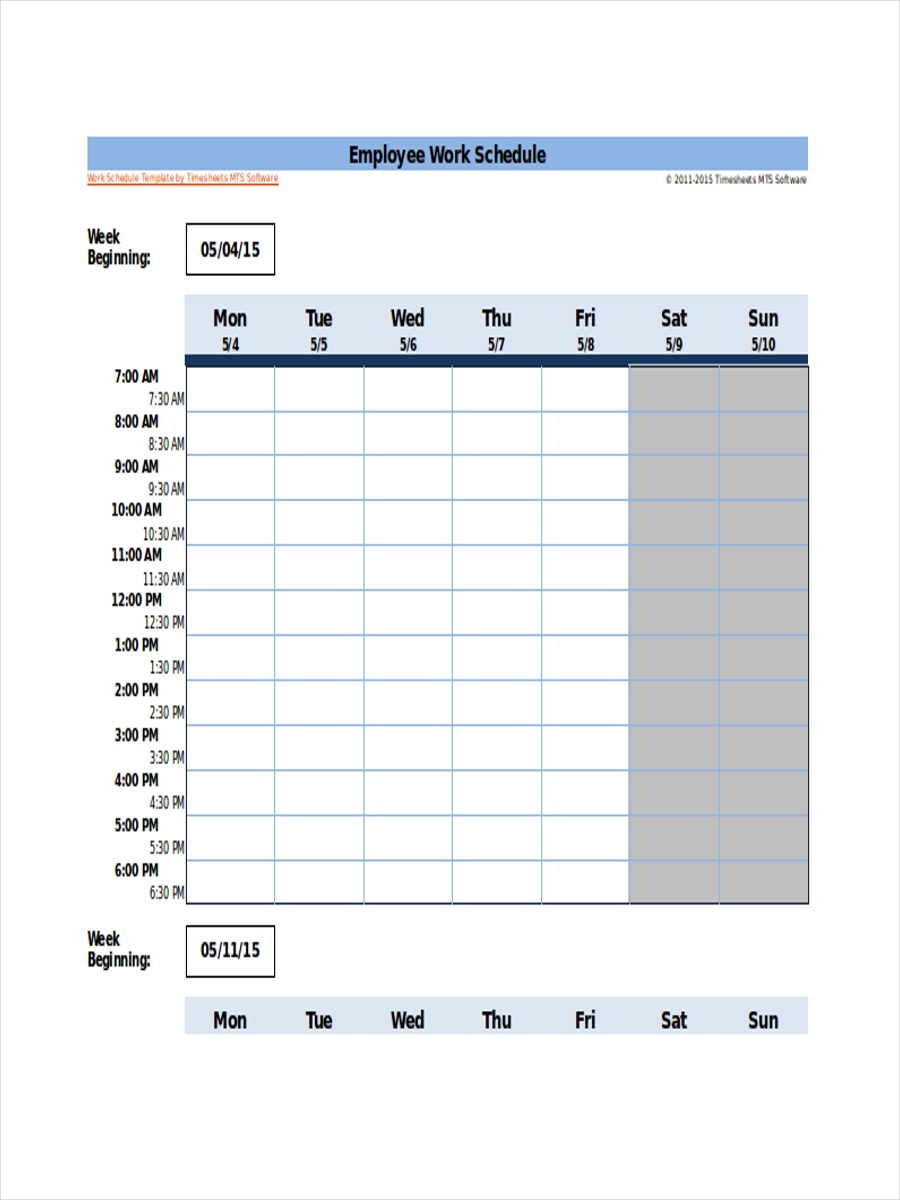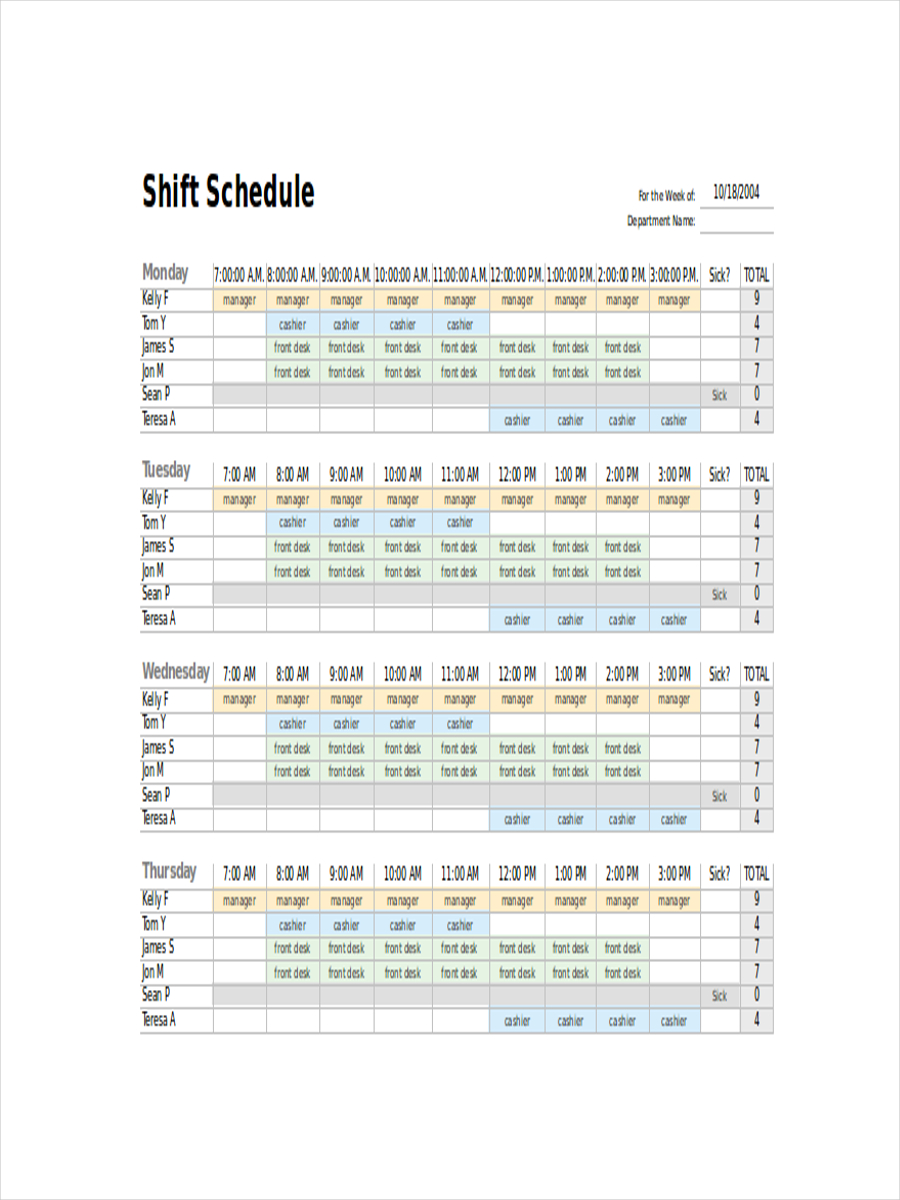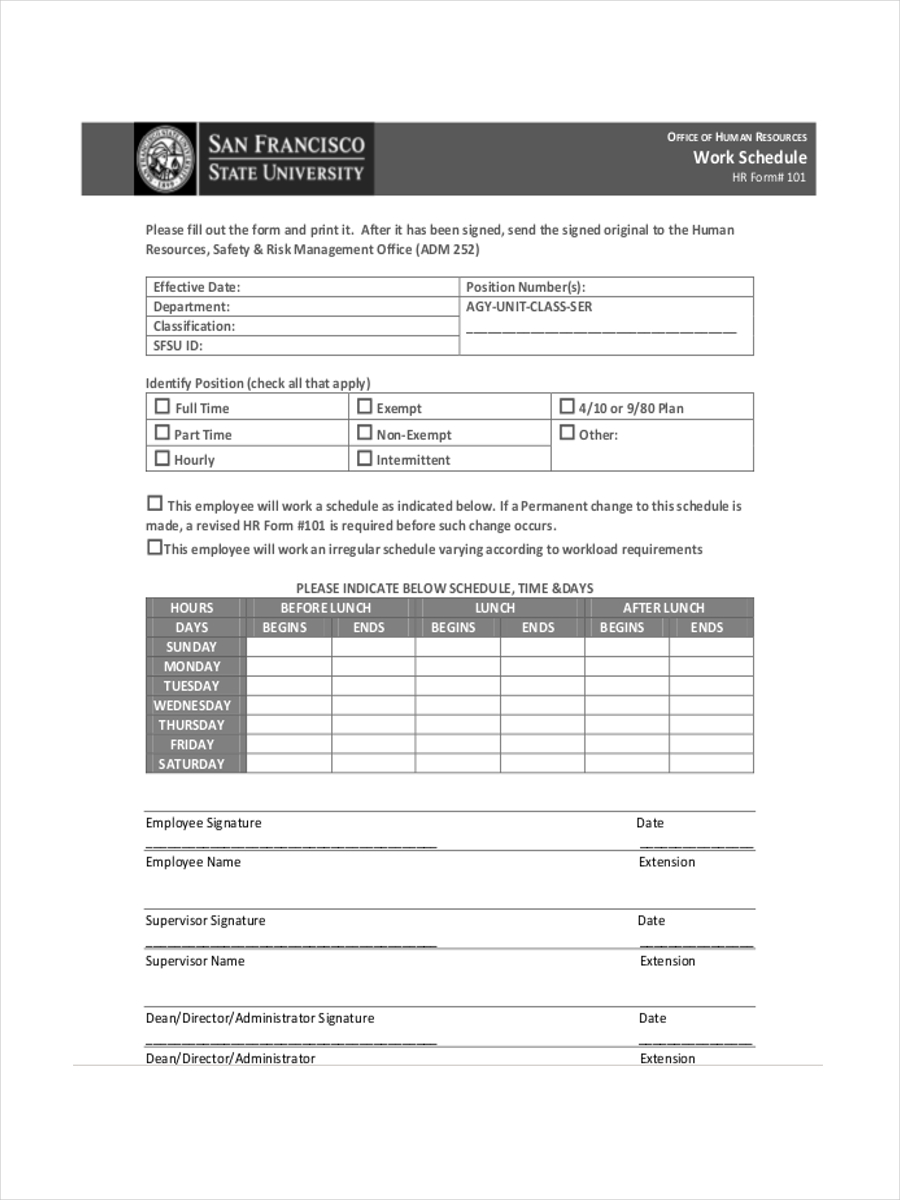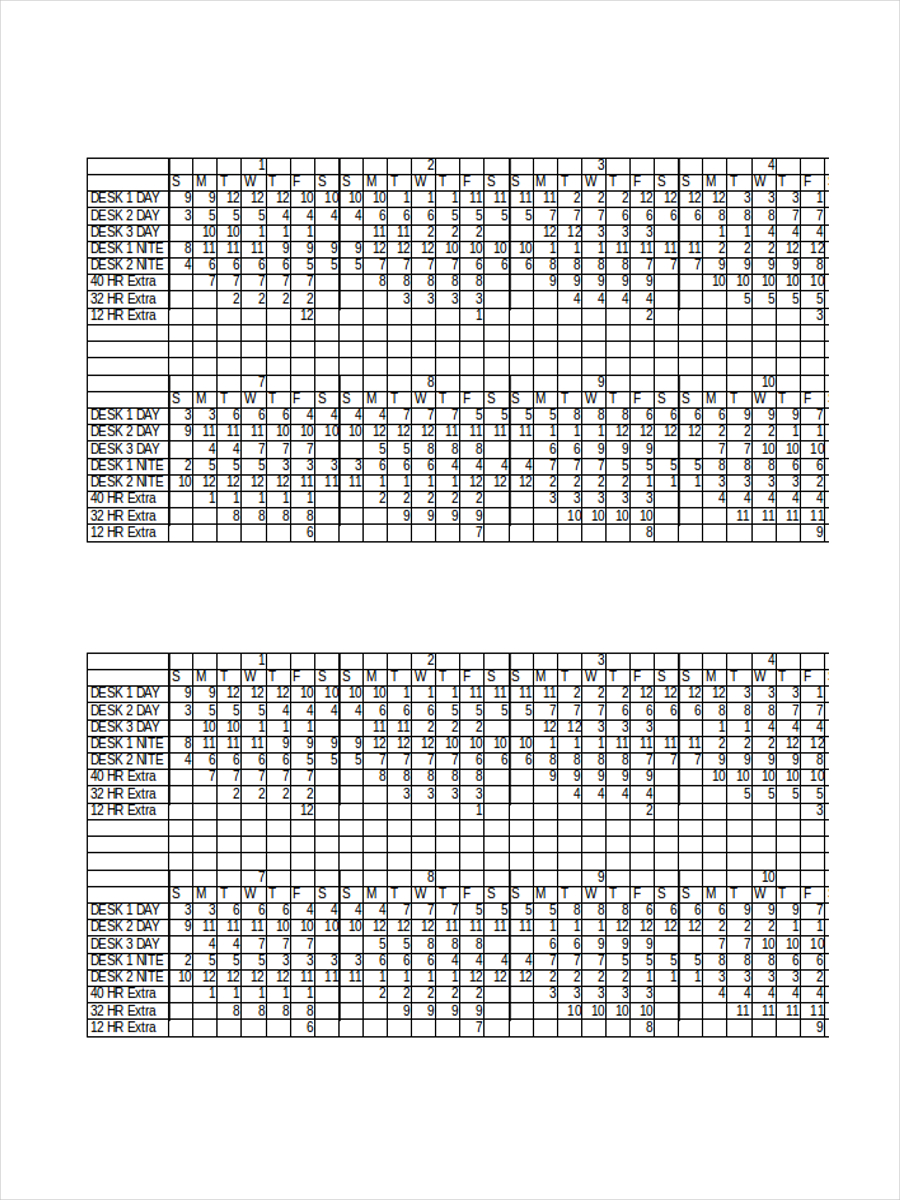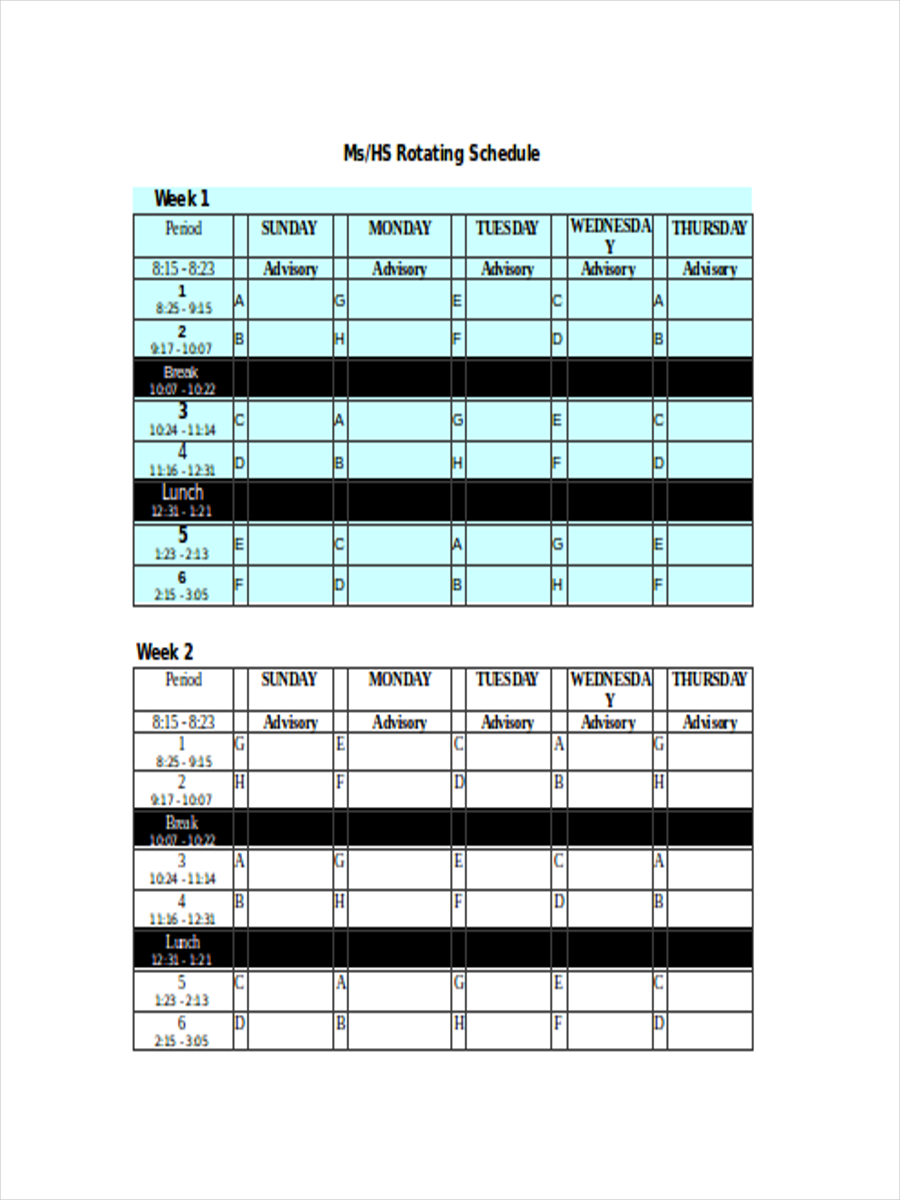16+ Shift Schedule Examples to Download
Nowadays, many jobs require employees to be present every single hour of the day. Some of these people include those who are a part of the hospital staff and the police. In a work setting, it is an unavoidable truth that each employee has their schedules. However, to cover up the whole production staff and to avoid any lapses or cases of an inadequate number of people working, you must create a shift schedule.
16+ Shift Schedule Examples
Shift Schedule Example
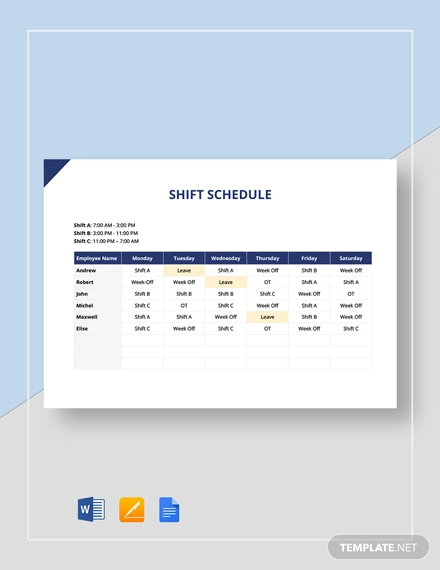
Monthly Shift Schedule Example
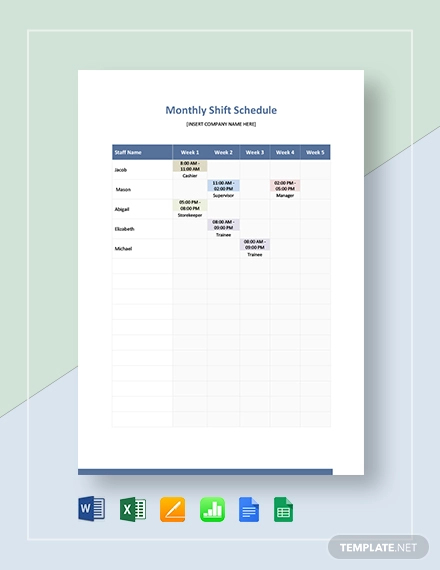
Employee Shift Schedule Example
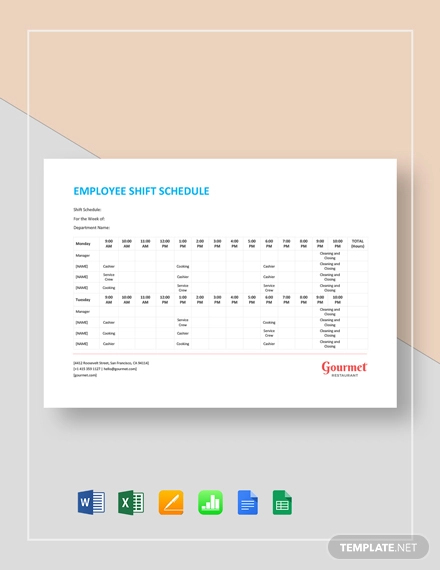
Rotating Shift Schedule Example
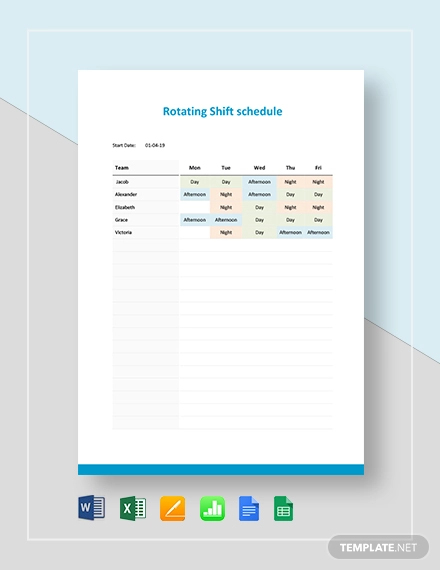
12 Hours Shift Schedule Example
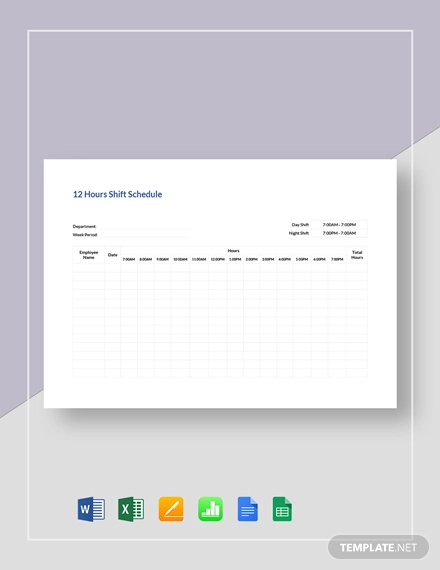
10 Hour Shift Schedule Example
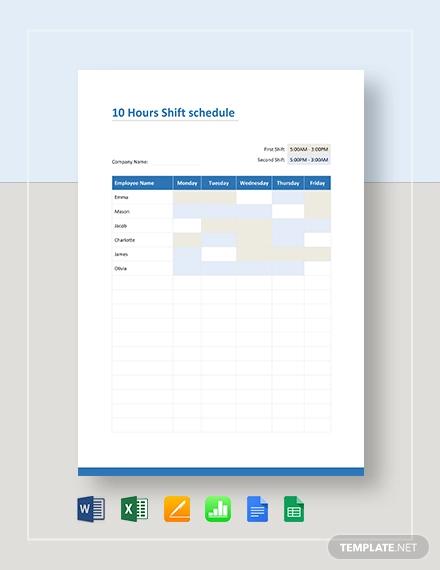
Monthly Employee Shift Schedule Example
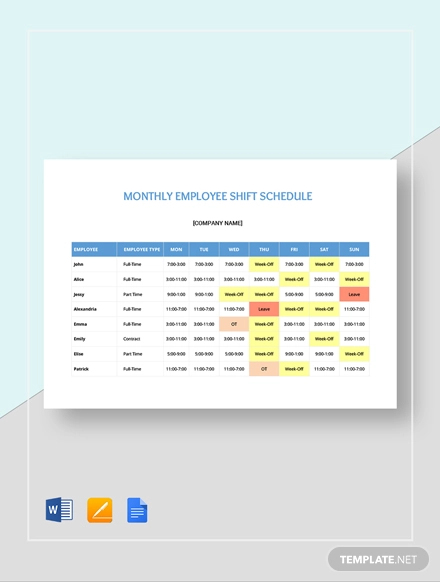
Weekly Employee Shift Schedule Example
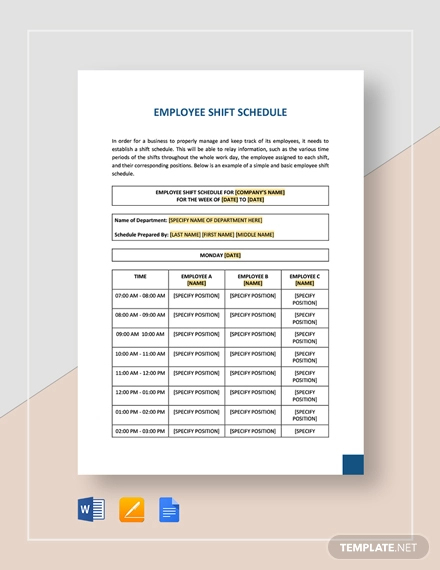
Sample Weekly Employee Shift Schedule
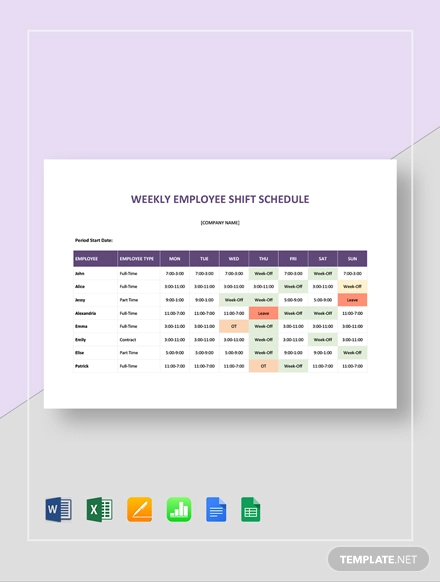
Shift Work Schedule Sample
Weekly Work Schedule
Schedule for Employee Shift
Monthly Shift Schedule
Free Shift Schedule Example
12 Week Shift Schedule Example
Schedule for Weekly Shift
Schedule for Rotating Shift
What Is a Shift Schedule?
A shift schedule is a document that contains descriptive data of the times and periods and which assigns individuals to a task. It usually comes in different methods. Some companies would use weekly and monthly schedules to give proper notice to its employees. When drafting a shift schedule, it usually involves adequate observance for work hours. Often businesses that operate 24 hours daily are the ones who use this type of plan. They use it to cover the entire work product without having an employee work for the whole of that day.
How to Plan a Shift Schedule
There are many reasons why businesses use a shift schedule and why it works out great for employees. According to an article by Forbes, specific scheduling enables employees to balance multiple jobs, comply with school calendars, or have some convenience in their life. However, if you set up the shift schedules for employees, here are some thoughts on how to make an effective one.
1. Know Your Employees
You will need to study the number of employees you currently have and how much output they can do in a day. This is important so you can set how many people need to work in a day. Once you do so, it will be easy for you to decide how long employees have to get work done and give them a reasonable shift schedule.
2. Understand the Work
Knowing the core of the business and its objectives should be your priority. If it demands a rotating schedule of people working for 8 hours, you can plan ahead of time with ease. The workload of individual companies sometimes requires a lot of time and attention. Knowing how much effort you need off employees is the first step to making an active shift schedule.
3. Consider Flexible Schedules
Some jobs, such as nursing and firefighters, require employees to be on call, so take that in mind when figuring out the shift schedule for them. You can never tell when an emergency happens, incorporate a flexible schedule that enables them to be present during emergencies, deliver mandatory work hours, and take a break. That way, their shift schedules are useful for them and the company as well.
4. Look Into Policies
While it might be a great idea to utilize every hour of the day and have some employees do productive work, you must also take it easy. There are legal policies that prevent companies from taking advantage of their workers this way. So look into them to create a fair and reasonable shift schedule for everyone.
FAQs
What is the most common work schedule?
The most typical work schedule is 8 hours of work starting from morning and ending till late afternoon. Typically from 9 am to 5 pm but the time can vary nowadays depending on when the business needs to begin operating.
What does a 9 to 5 mean?
A 9 to 5 refers to a regular or routine job. It is a common phrase or saying to describe typical 8-hour jobs that have the same time and tasks to do. It refers to jobs that people consider unfulfilling.
What does a graveyard shift mean?
A graveyard shift refers to the shifting schedules that involve working in the hours of the night and early morning. The name originated in the United States with the shaft initially referred to as ‘graveyard watch.’
A shift schedule provides beneficial support for a business, much more if you design it to handle effectively and manage the entire workforce. There are many ways on how it can be of importance to a company. Some of it includes controlling the flow of productivity and meeting the demands of the work for starters. That is why you must be meticulous in creating an effective shift schedule.



